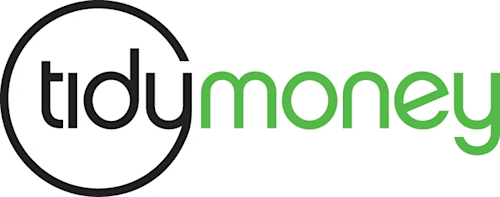Dealing with tax can be a daunting task. Especially if you’re new to the process. But, fortunately, the UK tax system has been designed to make it easy and simple for businesses to submit what they need to.
To make sure you have everything you need ahead of the new tax year on 6 April, here are some tips to help you manage your tax obligations.
Get organised and keep accurate records
Make sure you keep track of all your financial transactions, including income and expenses. You also need to make sure you have all the necessary documentation, such as receipts and invoices, to support your tax return.
Keeping track of all your business paperwork and organising it as you go, will make submitting your tax return so much easier.
File returns on time
HMRC has strict deadlines for submitting tax returns and paying taxes. If you miss these deadlines it could result in penalties and interest being charged on any late payments, so it's important to plan ahead and avoid the last-minute rush.
As a small business owner, you need to file tax returns with HMRC on an annual basis. There are two important dates you need to know about:
The deadline for Self Assessment tax returns is 31 January following the end of the tax year
The deadline for corporation tax returns is 12 months after the end of your accounting period
Pay your taxes on time
Just like you need to submit your returns on time, you also need to make sure you pay any money you owe to HMRC on time too. By paying on time, you can avoid any penalties and interest charges. Also, take note that HMRC has changed its penalties for late VAT submissions and payments.
There are two tips to making sure you pay your taxes on time:
Set aside funds for taxes: It's important to set aside funds for taxes throughout the year, so you're not caught off guard when it's time to pay. Estimate how much tax you are likely to owe and put a portion of your earnings each month to cover the cost. With your Mettle account, you can make pots to automatically set that money aside every month.
Use electronic payments: HMRC prefers electronic payments, which are faster, more efficient, and less prone to errors. This also means you can set up automatic payments, like Direct Debits, from your bank account, to take the payment. You can also use online banking, or credit/debit card payments to pay your tax bills.
Use cloud-based accounting tools
Cloud-based accounting tools help you to manage your tax affairs more efficiently and accurately. For example, FreeAgent is a cloud-based accounting software that can help businesses manage their finances and prepare for tax season.
Here are some ways in which cloud-based accounting software like FreeAgent can help you with your tax returns:
Record all income and expenses: You can record all financial transactions, including income and expenses, in one place, making it easier to track taxable income
Automatic tax estimates: The software automatically calculates your tax liabilities and provides an estimate of what you owe based on your company's income, expenses, and tax rate
Tax timeline: The tax timeline feature provides a clear view of all upcoming tax deadlines, making it easier for businesses to stay on top of their tax obligations
VAT tracking: FreeAgent can help you track and calculate your VAT liabilities, allowing you to submit VAT returns directly to HMRC
Document storage: The software allows businesses to store all relevant tax documents, such as receipts and invoices, in one place, making it easier to keep track of tax-deductible expenses
Accountant access: FreeAgent allows accountants to access the software, making it easier for them to work with businesses to prepare their accounts and tax returns
Keep up with tax changes
As a small business owner, it’s a good idea to familiarise yourself with the tax rules and regulations, depending on what type of business you have.
It’s also a good idea to stay informed about any tax changes and to make sure you understand how these changes may affect you or your business. This includes finding out about any tax reliefs and allowances that are available to you, such as business expenses and personal allowances. Make sure you take advantage of them to reduce your tax bill.
But if you’re ever unsure about your tax obligations, or are facing a complex tax issue, then you should reach out to professionals to get advice. This will help you to avoid any errors and penalties. Schedule regular meetings or calls to discuss your business finances, tax obligations, and any other issues that may arise.
Get tax investigation insurance
As in many other areas of your life, having insurance is always a good idea. Tax investigation insurance – also known as tax fee protection insurance – is a type of insurance policy that provides cover for professional fees and costs incurred in the event of an HMRC tax investigation or enquiry.
If HMRC decides to investigate a business or individual's tax affairs, it can be a time-consuming and costly process. The costs of defending yourself can include professional fees, such as the fees charged by tax advisers, accountants, and lawyers.
Overall, managing tax requires careful planning, organisation, and attention to detail. By following these tips and seeking professional advice when necessary, you can ensure that you meet your tax obligations and avoid any unnecessary penalties or fees.
You can find out more about Tidy Money here.
Disclaimer: The content of this blog is based on our understanding of the topic at the time of publication and should not be taken as professional advice. Any of the information may be subject to change. You are responsible for complying with tax law and if in doubt, should seek independent advice.






